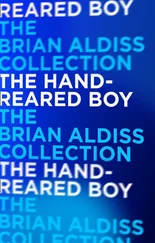‘My belief in the miraculous doesn’t extend to quite that extent.’ She sighed. ‘Let me go, Tom. I don’t like to be your captive. This is boring. How’d you like to be a woman and go through this same scene so often? I was going through it only just now with Jacques, except that as yet you have not laid a finger on me. But that will come, eh?’ She looked at him with contempt, yet with a half-smile; there was a coquetry she seemingly could not suppress.
‘You must continually plant yourself in the same scene, mustn’t you, Selina? The role must give you a little titillation and pleasure, isn’t that so?’ He heard anger and banter and lust, spiced with a mite of sympathy, in his own voice.
She stopped pacing and faced him. ‘Give me a cigarette.’
‘Don’t smoke.’
‘It’s so late.’
‘You look fresh.’
‘I will not have any of your phoney psychiatry such as you gave me this morning. That was an insult, I consider. That Freudian stuff … That’s why I avoided you and would not eat dinner with you this evening, in case you wondered.’
‘I didn’t wonder. I guessed. But my remarks weren’t meant to irritate. I simply had a moment of perception regarding some of your troubles, or thought I did. I don’t want to pry, why should I? But if I can help I’d be glad to.’
‘Because you think you can get me into bed that way.’
He laughed. ‘Does it hold such fears for you that you dread it? It’s pleasant. Precious, if done for its own sweet sake, not as some sort of – bargain. Often exciting, sometimes consoling, occasionally – miraculous.’
She flushed. ‘Okay. That’s enough. I’m not a kid, you know. I can’t be talked into what I don’t wish to do. I’m not just a bloody body, you know.’
‘True.’ He pulled the door key out of his trouser pocket by its plastic label, walked over to the door, and opened it.
‘You’re free to go if you wish.’
She gathered herself up, breasts, stomach, handbag, between her arms, then suddenly changed posture, raising a finger.
‘Wait! Maybe I have a cigarette left after all, let me just look.’
She opened her handbag and produced a packet, which she flipped open and proffered, letting Squire see the label. ‘Drina’.
‘You can buy them in Germany now. So many poor Yugoslav Gastarbeiter are in the Bundesrepublik, working away to keep democracy going.’
‘And maybe to prop the tottering communist economy back home?’
As he accepted a cigarette, they both laughed. After they had lit up, she closed the door gently with her back and smiled at him.
‘Wicked Jacques may still be lingering in the corridor with intent. I am afraid to go from your room.’
‘If not sex, I’ve only got vodka to offer.’
‘Fine.’
She consented to sit down on the bed. After a drink, she allowed him to kiss her. Then she drew away her lips and smoked in silence. He watched her, admiring the line of her neck, its feather of dark hairs, her lobeless ear.
‘How could there be any possible connection between the death of my father, so long ago in Kragujevac, in a country I no longer visit, and my political sympathies?’
‘It’s just an intuition, and my intuitions aren’t reliable. But I also lost my father at an early age, and am aware of the stresses such bereavements bring with them. Otherwise, I had only your extraordinary reading of Aldous Huxley to go by. In his most enduring book, Brave New World – which I suppose Herman would classify as science fiction – Huxley dramatizes the battle between the state and the individual or, to define it more narrowly, between a bureaucracy and sexuality. Do you hate Huxley because he was on the side of sexuality? Doesn’t sexuality and all that goes with it challenge the Perfect State – or any state that claims perfection and therefore classifies all who criticize it as criminals? Remember the words of the Savage in Brave New World. He claims the right to be unhappy, to grow old and ugly and impotent, to catch syphilis, to be tortured, because then he can get a glimpse of freedom and poetry. I’d say on the basis of our very slight acquaintance, that you might be alarmed by the Savage in all of us, including the Savage in yourself. By opting for a repressive system, you repress the Savage.’
‘More phoney psychiatry! You insult me. You treat me as if I were a child.’ She puffed smoke at him.
He put an arm lightly round her waist.
‘You just see it that way. I only offered you an intuition. Marxism sounds bad in your pretty mouth, but I’ve no business speaking to you like this.’
‘That’s true!’ she said with spirit. ‘It’s immoral – interfering. Someone described you as a self-appointed critic, that I know. They were right!’
‘Would you rather critics were appointed by the state? The self-appointed ones are best, kindest, most disinterested … Were you happy as a child – I mean, before the massacre at Kragujevac? Can you remember so far back?’
She turned the fine bone china of her face towards him and regarded him searchingly with a pure glance which came close to making him quail.
‘No – yes. One always remembers.’ She looked at him, playfully, slid her spectacles down on her nose to regard him better. ‘Let me tell you this – since it’s late – my secret. My father was a desperate man, desperately poor, desperately everything, like a character from Gorki. There were trees behind our house where he would go to rage… He often beat me when he was drunk, with his hand or with poles. Yet after he was shot, I knew I loved him dearly, needed him, and I longed in despair to see him once more and even be beaten by him. I would be utterly degraded, as long as he came back. There, that’s the truth.’
She exhaled blue smoke and waved it away.
‘Your mother? You don’t mention her.’
‘She died giving birth to me. Another woman looked after us then.’
They sat without speaking, smoking together companionably, occasionally sipping vodka. She said, ‘Of course there’s more to it than that. There always is. The world changed, that day he and my brother were shot by the Germans. It wasn’t only them I lost, but a less tangible thing … A.E. Housman’s land of lost content. You can never get back there.’
She quoted,
That is the land of lost content,
I see it shining plain,
The happy highways where I went
And cannot come again.
‘You will think I’m very self-pitying, when you get to know me.’
‘We all need pity.’ He stroked her dark hair, and she rested her head against his shoulder. He remembered her anecdote about Dorothy, the woman with the brain injury.
‘One day, I’ll tell you about the death of my father.’
A simple exchange of stories … The promise appeared to please her. She rested a hand with its bright nails on his shoulder, whilst continuing to gaze into the shadowy recesses of the room.
‘It’s the night, Tom. When we’re changed, somehow …’
‘I don’t really know you at all. It’s a cheek to pretend to … Why don’t you go back to Serbia?’
‘Oh … The pain, or something. Let’s not talk about it. Kiss me again, if you’ll kindly go no further than that. In a way you’re right – I hate sexuality.’
‘Your beautiful lips, Selina …’ He poured kisses on them, removed her spectacles, held her tightly, relished the taste of her mouth, the warmth of her breath, began pressing his body with its erection against her thighs. She pushed away, gasping.
‘Look, Tom, be kind, promise, promise – I know how you feel, but promise you will just do no more than kiss me. Will you? Just kiss …’
‘No more? Come on, no one knows we’re here together.’
‘Tom …’ She wrapped an arm around his neck, whispering, ‘Then I’ll feel safe … Promise …’
Читать дальше












